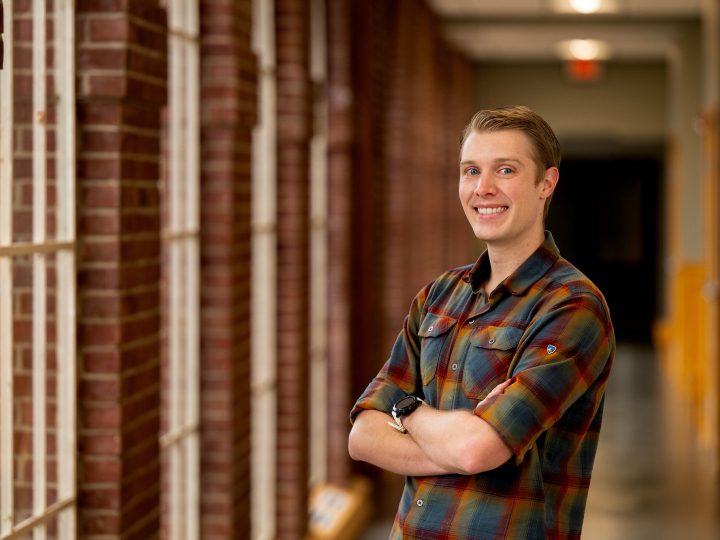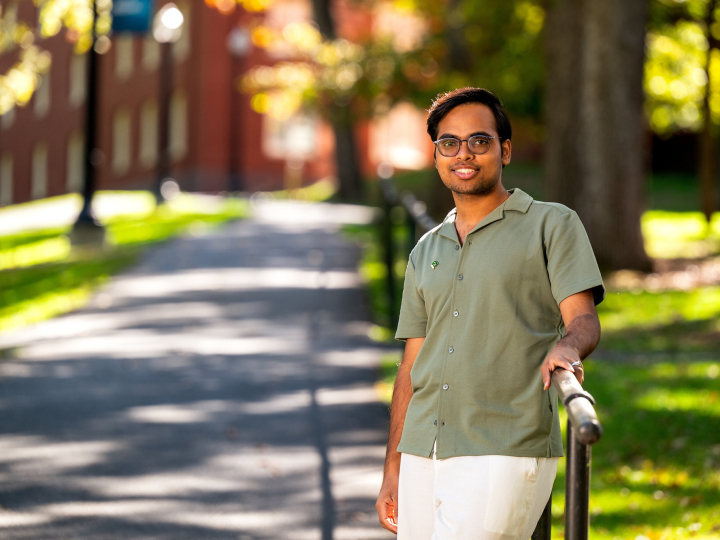The Process of Poetry and Prose
February 16, 2018
To publish one acclaimed book in any given year is a rare accomplishment. But to publish two — one poetry, one prose — within a few months of each other is utterly remarkable. Yet that was the year 2017 for Camille Dungy, the Stadler Center for Poetry's poet-in-residence.
Dungy read from both of these books, Trophic Cascade (poetry) and Guidebook to Relative Strangers: Journeys into Race, Motherhood, and History (a finalist for the National Book Critics Circle Award for criticism) Feb. 6 in Bucknell Hall. She also answered questions about her work Feb. 8 during a luncheon in the Elaine Langone Center.
During her conversation with students, faculty, staff and community members, Dungy spoke with humor and humility about her habit of publishing books nearly simultaneously: "I twin books." When asked if her writing process is different for poetry and essays, she said, "It's like the difference between Northern California and Southern California." She explained that the northern and southern regions of her home state are very different, but they're both California. It's likewise with prose and poetry: "They're different, but you're using a lot of the same tools."
Dungy also detailed her process for assembling the 2009 anthology Black Nature: Four Centuries of African American Nature Poetry, for which she served as editor. "What helped make it groundbreaking was that black people have been in America for 400 years writing about the environment, but it had been compartmentalized as historical, political or protest poetry, not nature poetry."
She concluded by giving advice to young poets: "Read everything, but also stretch to read things that challenge you. Travel to open yourself to places beyond your comfort zone. Keep challenging yourself — good poetry comes out of this."
Since 1981, the Stadler Center's poet-in-residence program has brought writers of national and international renown for an extended stay during the spring semester. The poet-in-residence teaches a master class or meets individually with qualified students, gives a public reading and a lecture or Q&A session, and serves as an active literary presence on campus. Recent recipients include Mary Ruefle, Chase Twichell and Dean Young.

